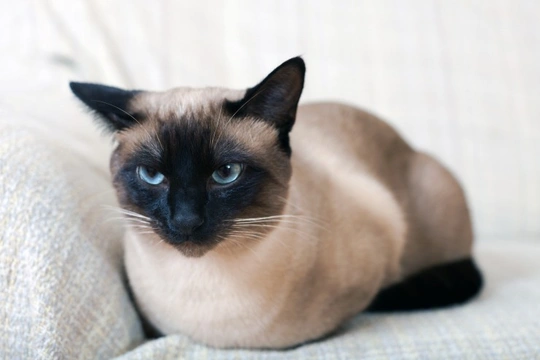
Mediastinal Lymphoma in Cats
Mediastinal lymphoma appears to affect certain breeds more than others, with the Siamese Cat being high on the list. It is a type of cancer that seriously impacts the space between a cat's lungs. The problems start in a cat's lymphocyte cells which play a key role in maintaining their immune systems. Research has established that lymphoma is one of the most common blood cancers seen in cats and studies show it to be the cause of hypercalcemia in many breeds.
Symptoms of the Condition
The signs of there being a problem varies as it depends on the type and size as well as the number of tumours involved, but with the mediastinal lymphoma, cats generally show the following symptoms:
- Breathing with an open mouth
- Coughing
- Lack of appetite
- Anorexia
- Loss of weight
The Causes
Research suggests that lymphoma may be linked to cats being exposed to the feline leukemia virus (FeLV) as well as the feline immunodeficiency virus (FIV). As such, any cat that has developed either of these disorders is at greater risk of developing some form of lymphoma which includes mediastinal lymphoma.
Diagnosing the Problem
A vet would need to have a cat's full medical history and ideally their ancestry too which would help confirm a diagnosis. The vet would also need to know how the first signs of there being something wrong first manifested themselves. A cat suspected of suffering from mediastinal lymphoma would be thoroughly examined and vets would typically recommend carrying out the following tests to establish whether a cat is suffering from the condition:
- A complete blood count - this would establish if a cat is suffering from anaemia or if there are high levels of lymphoblasts in a cat's peripheral blood which is a condition known as lymphoblastosis
- A biochemistry profile - this would establish if a cat has abnormally high levels of creatinine, liver enzymes, serum urea nitrogen and calcium in their systems
- A urinalysis - this would establish if a cat has higher levels of bilirubin and protein in their urine
- Cats should be tested for FeLV
- X-rays - to establish if internal organs have been affected
- A biopsy of bone marrow - this would confirm a diagnosis
Treatment Options
Sadly, the condition is incurable, but the end goal of any treatment would be to improve the quality of a cat's life for as long as possible once they have been diagnosed as suffering from mediastinal lymphoma. In some instances, a vet might recommend the following treatments, but only after a cat's condition has been assessed by a qualified veterinary oncologist:
- Chemotherapy
- Radiotherapy
Several factors would be factored in when considering whether a cat would be a candidate for either of the above and this includes the stage at which the cancer has been diagnosed, a cat's age and their overall health and well-being. In some instances, a vet might recommend surgery, but again it really does depend on when the tumour was first diagnosed and what stage it has reached as to whether surgery would be an option.
Prognosis
The prognosis is never very good for cats when they have been diagnosed as suffering from mediastinal lymphoma. With this said, it does depend on when a cat is first diagnosed with the condition, the type of tumour and the number of tumours that have developed. A vet may recommend chemotherapy and would need to closely monitor a cat's condition to assess how well they are responding to the treatment.
Living with a Cat with Mediastinal Lymphoma
Sadly, there is no cure for mediastinal lymphoma. However, it is possible to make a cat as comfortable as possible so their quality of life remains as good as possible for as long as possible. It is essential that a cat's water and food intake be closely monitored when they suffer from the condition. Sadly, the survival rate for cats with mediastinal lymphoma is never very long which is typically anything from a several months to around two years.



